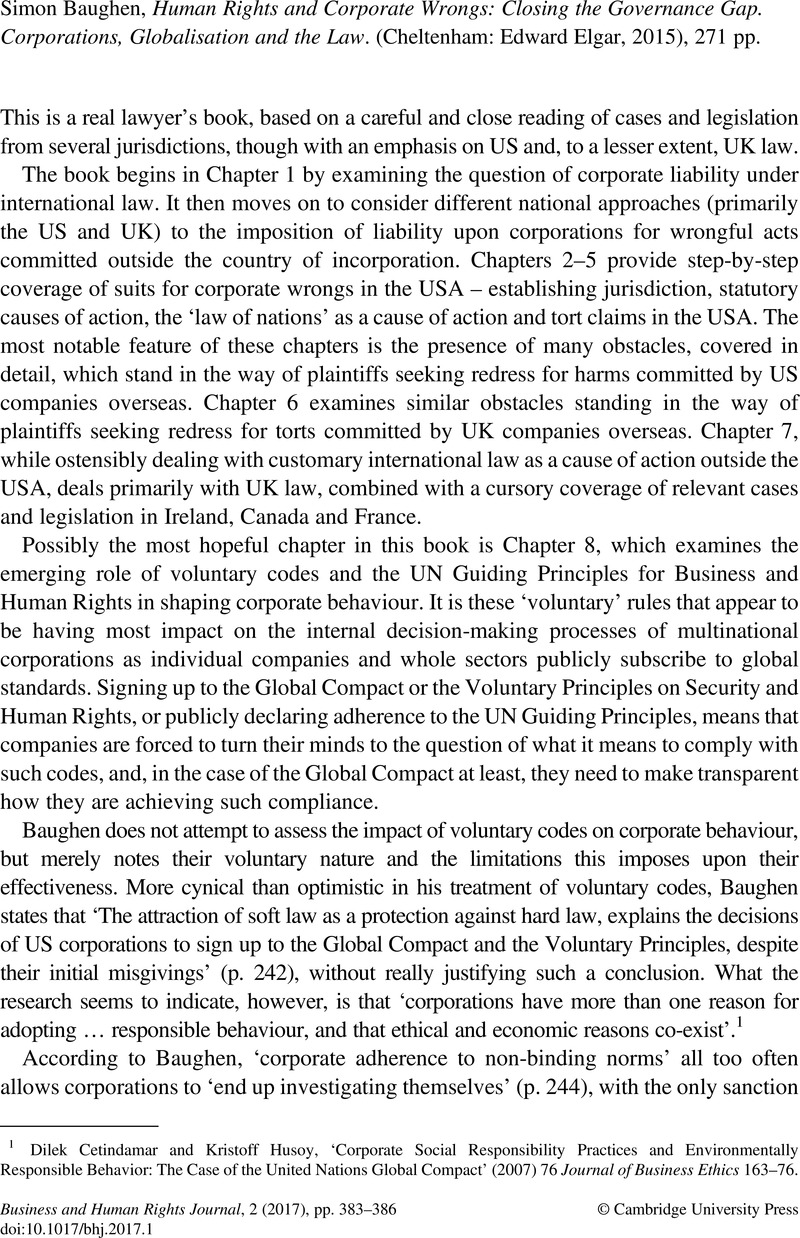No CrossRef data available.
Published online by Cambridge University Press: 13 March 2017

1 Cetindamar, Dilek and Husoy, Kristoff, ‘Corporate Social Responsibility Practices and Environmentally Responsible Behavior: The Case of the United Nations Global Compact’ (2007) 76 Journal of Business Ethics 163–176 CrossRefGoogle Scholar.
2 Dow Jones Sustainability Indices website, http://www.djindexes.com/sustainability/ (accessed 10 January 2017).
3 FTSE4Good Index series website, http://www.ftse.com/products/indices/FTSE4Good (accessed 10 January 2017).
4 FTSE Johannesburg Stock Exchange Socially Responsible Index website, https://www.jse.co.za/services/market-data/indices/socially-responsible-investment-index (accessed 10 January 2017).
5 Business and Human Rights Resource Centre website, https://www.business-humanrights.org/ (accessed 10 January 2017).
6 Mineral Policy Institute, Mining Monitor website, http://www.mpi.org.au/mining-monitor/ (accessed 10 January 2017).
7 International Labor Rights Forum (ILRF), ‘The 14 Worst Corporate Evildoers’, Global Exchange, 12 December 2005, http://www.laborrights.org/in-the-news/14-worst-corporate-evildoers (accessed 10 January 2017).
8 Oliver Balch, ‘Indian law requires companies to give 2% of profits to charity. Is it working?’ The Guardian (5 April 2016), https://www.theguardian.com/sustainable-business/2016/apr/05/india-csr-law-requires-companies-profits-to-charity-is-it-working (accessed 10 January 2017).
9 Rasche, Andreas. ‘“A Necessary Supplement” – What the United Nations Global Compact Is and Is Not’ (2009) 48(4) Business and Society, 511–537 CrossRefGoogle Scholar. Ken McPhail and Muhammad Azizad Islam. The United Nations Guiding Principles on Business and Human Rights: Putting Accounting for Human Rights into Practice (Melbourne: La Trobe University, July 2014).
10 Impact: Transforming business, changing the world. UN Global Compact, 2015. https://www.unglobalcompact.org/docs/publications/ImpactUNGlobalCompact2015.pdf (accessed 10 January 2017).
11 Liam Leonard and Maria Alejandra Gonzalez-Perez (eds.) Beyond the UN Global Compact: Institutions and Regulations (Advances in Sustainability and Environmental Justice, vol 17) (Emerald Group Publishing Limited, 2015).